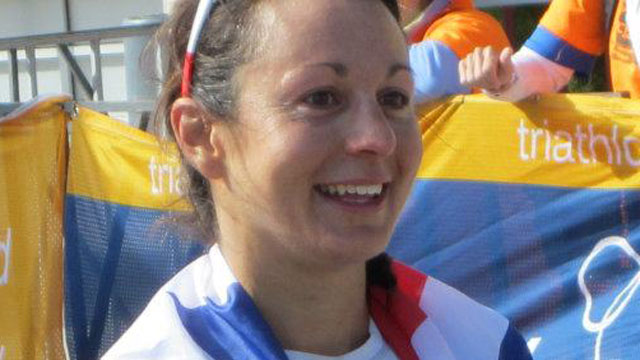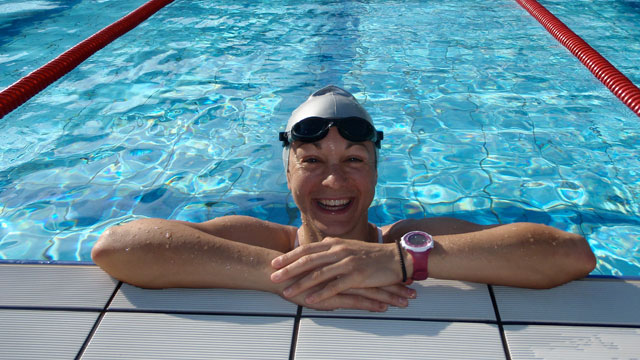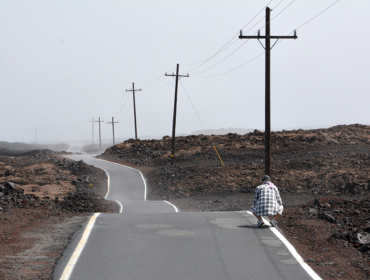Since one month we have Rachel Joyce on board. We asked her the same questions we asked Andi Boecherer a few weeks ago. Rachel is really a woman who has got something to say. Enjoy the read!
And, Rachel we are happy that you are now a »Biest of the Best«, and an athlete
with Biest spirit. Most welcome!
As a child what was your dream job?
I think there was a point when I was about 5 that I wanted to be a ballerina but I think I realized quite early on that I lacked the grace to succeed at that! After that I had two main dream jobs: one was to go to the Olympics and the other was to be a journalist or a writer.
Who were ideals back then?
As I moved into my teens I became quite political and a bit of a feminist. I set up a girl’s soccer club just because I thought we should have the chance to play football too…unfortunately I wasn’t very skilled at it! I also insisted that girls should be able to run the 1500m on sports day like the boys. So I suppose I always thought that both sexes should have the same opportunities quite early on!
You studied law/ What kind of a role does law play in your life today? Does it influence the way you think and the way you do sport? Does it help you in your everyday work as a top triathlete?
It sounds odd but I really think training and working as a lawyer for 6 or so years equipped me with a set of skills that I can use in my life today as a professional triathlete. Legal work is a lot about preparation, organizing your time so you are ready for the day of “completion” (when all the documents have to be signed). The same is true for triathlon: it’s the weeks and months leading up to race day that count: if you prepare well you make it much more likely that things will go smoothly on race day!
These days law doesn’t really have a role in my life. I stay in touch with some of my colleagues at Taylor Wessing, and I guess the way I think has been shaped by my legal training. Working in the law equipped me with good problem solving skills, and taught me to think things through rationally and stay calm when under pressure – which is very useful on race day!
When did it first occur to you to become a triathlete?
I am a swimmer by background and guess I got into triathlon when I was looking for a new challenge. I’d run a marathon in 2001 and done pretty well (3.02) so thought I may be good at endurance sports. I raced as an age grouper to start with and I guess the key moment, when I thought I may be able to pitch myself against the best in the world, was at the Ironman 70.3 World Champs in 2006. I won my age group (25-29) and my times on the swim, bike and run were not too far of the pro women. The seed of an idea was planted!
Initially I reduced my working week at Taylor Wessing to 3 days. Unfortunately my enthusiasm to train was greater than my body’s resilience so I spent much of the next 2 years either injured or ill. In June 2008 I turned 30 and rather than thinking I should go back to focusing on my legal career I decided it was either now or never, and so resigned and trained full time. My first professional Ironman start was in Ironman Florida in November 2008…luckily it went pretty well (5th and 9:35), which was enough to convince me that I should keep at it. I’m glad I did .
Do you have any ideals/role models now?
I admire a lot of people although I’m not sure I would call them my “role models”. I think what Chrissie has done for the sport is great and I really admire her focus and work ethic. Equally, I am inspired by many people I meet on my travels for all sorts of reasons. For instance: a couple I met in Abu Dhabi love the sport but living in Saudia Arabia their training opportunities are limited to circuits of their enclosed university grounds. The fact they stay motivated to train in such adverse conditions motivates me when I’m slow to get out the door!
Do you have a mentor?
I don’t have an official mentor no, but I have certain people around me who I trust and will go to for advice. Matt Dixon, my coach is one of those people. I’ve been working with him for nearly three years and I know he’ll give me sound advice. I’m also from a very close family so they are a real rock and I know I can ask them for advice.
Is gender in sport an issue for you?
The feminist ideals I picked up as a teenager have stayed with me, and today I strongly believe that women should be recognised as much as men for their achievements in sport. It frustrates me that women get so little coverage in the media for sport. I think the statistic is something like only 5% of all sports coverage is of women and this is not because women aren’t achieving great things.
Within the Ironman world, I was disappointed that the WTC decided to limit the women’s field to only 30 at the Ironman World Championships, whilst men have 50 spots. I think we need to set an example at the top of the sport that participation should be equal. This sends out a positive message rather than people thinking it’s normal and “just the way it is” for there to be fewer women taking part. Similarly, I would like to see the number of women participating in sport increase too. It is increasing but there’s a little way to go before we catch up.
How do you see the development of the women’s field in triathlon?
I think the level of participation by women in triathlon is definitely on the up. There are lots of women only triathlons, and training days which help as I do believe women can feel a little intimidated by the fast guys. I’ve been involved in some training days in the UK and women create a very supportive and encouraging atmosphere which I think is good for those taking their first tentative steps into the sport.
In the past few years I think we have seen that the depth of competition in women’s racing has really improved. It won’t be long before it equals the depth in the men’s field.
Which have been the most incisive experiences of your career…positive or negative!
My race in Kona in 2009 was a real eye opener for me as to what I could achieve in the sport. I turned up to Kona that year pretty green and I had no idea how I would fair against the very best in the world. When I rode into T2 in 4th position I was in a state of disbelief and although I eventually finished in 6th place I still couldn’t believe what I had achieved. I think that experience showed me that I could achieve more than I thought in the sport and that I should maybe shift my goals a bit.
Which has been the experience you learned the most out of for your sport?
Unfortunately I think we learn best from bad or sub-par experiences in life and the same is true of my biggest learning experience in triathlon. It was in 2008 and I was racing in the ETU Long Distance Champs. It was my first time wearing the GB strip and I really wanted to make an impact. I spent the days leading up the race feeling intimidated by the people I would be racing against, feeling out of my depth and probably more worried about what everyone else was going to do.
Come race day I was a nervous wreck and my race was practically over before it began. I took a wrong turn on the swim course, so instead of being one of the first out I was the last! I then rode like a maniac, forgetting to fuel and crawled home on the run in a very disappointing position. It was a miserable experience but taught me a lot!
I learnt that I should focus on my own preparation and own race: the things I could control. I can’t control how other people will race so why stress and waste energy thinking about? I also learnt to stay calm and focused during a race, and spend time ahead going through each stage of the race, running through various “what if” scenarios. SO, in some ways it was good having that very bad race experience!
How did your training change over the years?
When I first started triathlon my training was a very social thing: it was a way to catch up with friends and there wasn’t much in the way of structure. These days I still love to train but my training has much more structure, every session has a purpose. So, for instance I used to just go out in a group and ride long. These days I ride solo or in a much smaller group which will include race specific intervals. The same applies to my running. Swimming is quite similar although I train more on my own or with one or two other people as swim squads in London are usually late in the evening and past my bedtime!
How important is the family, are friends for you in a sport that is getting more and more competitive?
My family and friends are hugely important to me and even if I don’t see them as much as I would like due to the amount of time I spend away from home, they have always been very supportive of what I do. I know that when I race well they are very happy for me but at the end of the day I’m just Rach to them. Whilst I love triathlon my family and friends bring the balance I need in my life. I love hearing about what they are doing in their life: their work, families and sports as I don’t really like to talk about triathlon all the time!
What’s your favorite music?
This changes all the time: right now it is Girl Talk as it’s fun and gets me fired up in training. My overall favourite music is probably either some early Pearl Jam stuff or anything by Erikah Badu.
What’s your favorite movie?
Eek. I find it so hard to choose just one. Maybe Shawshank Redemption – I could watch that again and again.
Which are your favorite books?
Another tough question. I know it’s girlie but I love Jane Austen so one of her books.
What is your favorite color?
Orange or red…depending on my mood!






